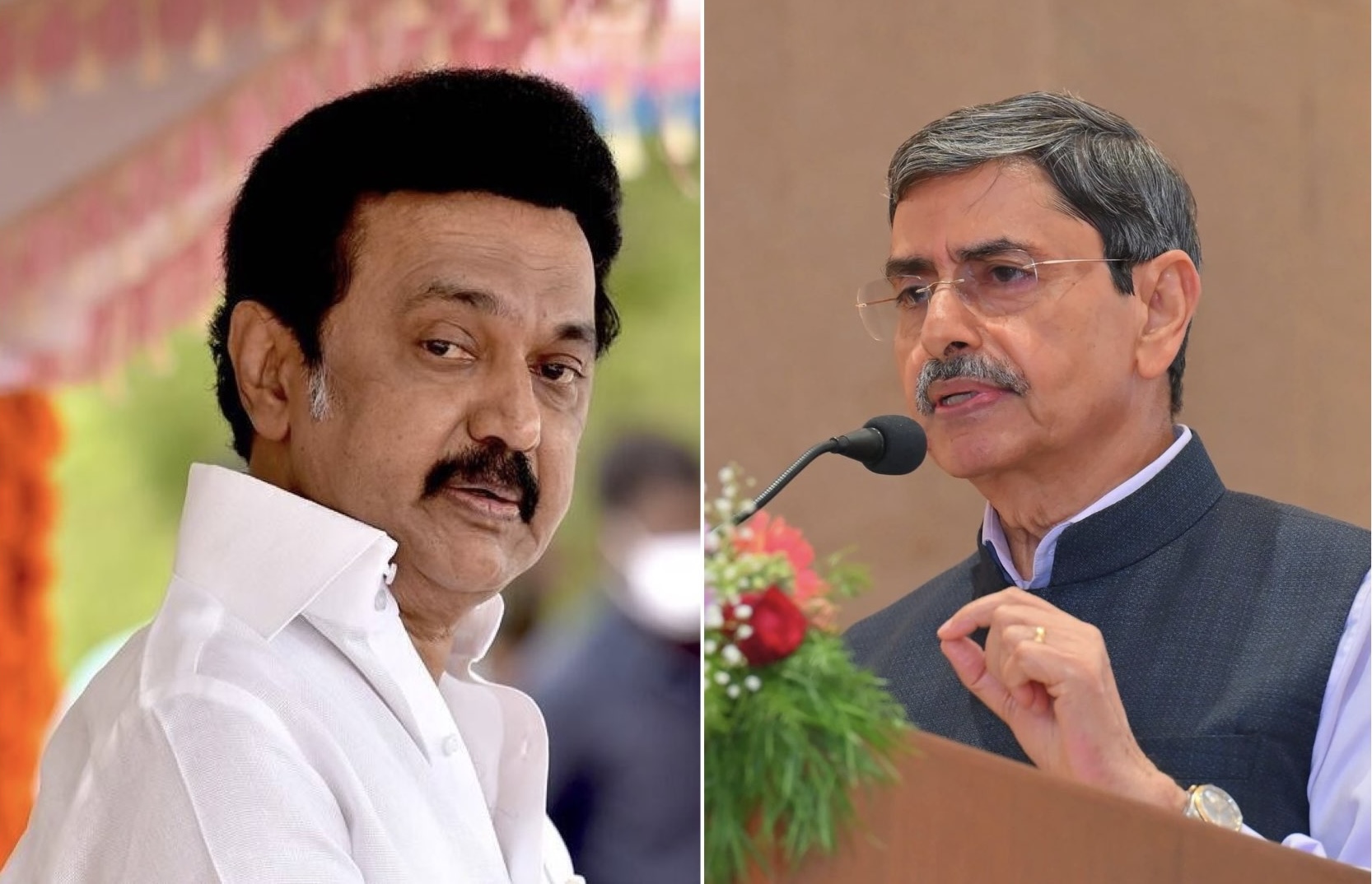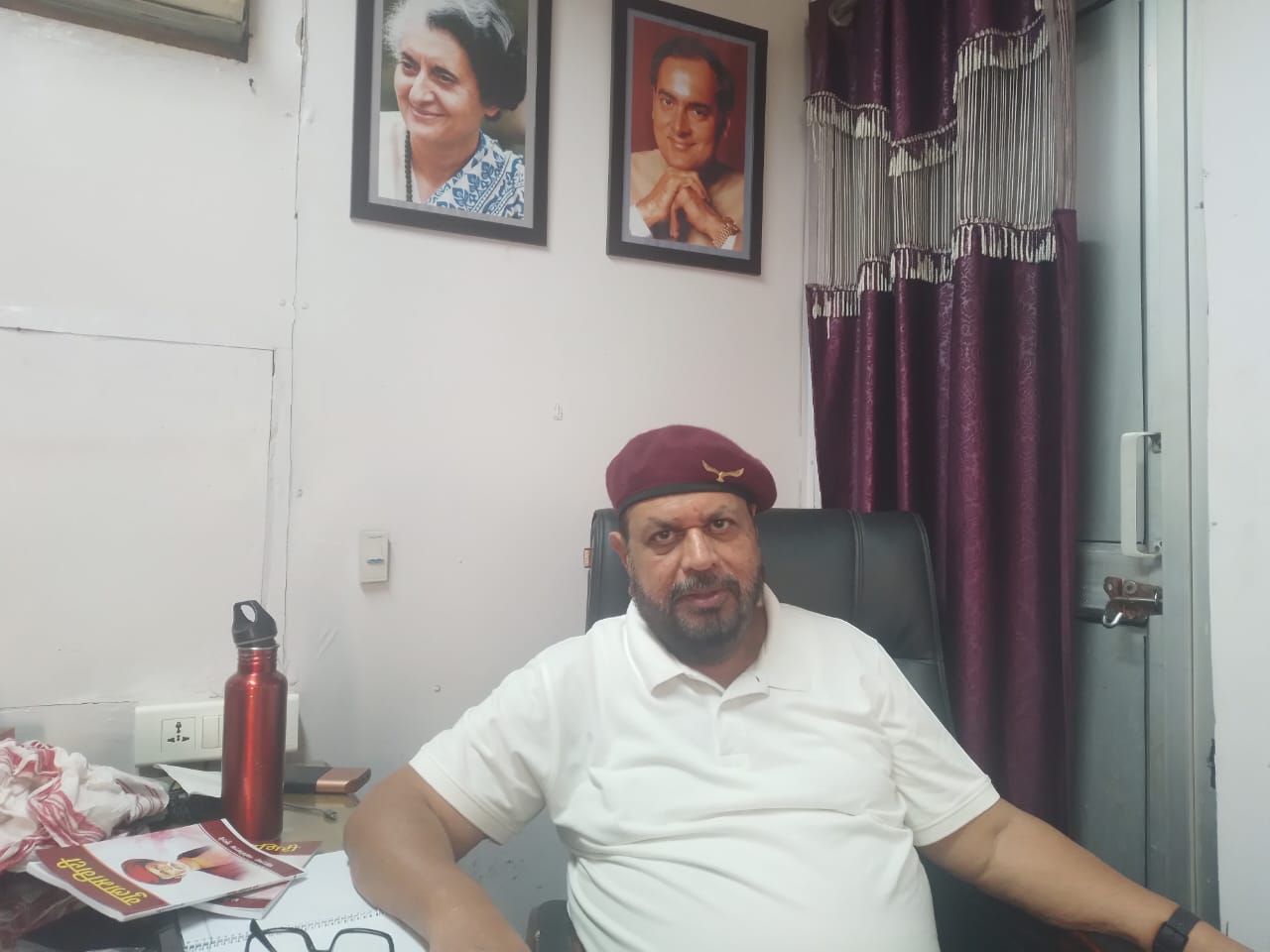Delhi is going to witness an interesting electoral bout in the upcoming assembly elections. The Aam Aadmi Party (AAP), which has been in power for more than 10 years, is facing anti-incumbency for the first time. The Congress, which has been out of power for the same period, wants to mobilize this sentiment in its favour. The Bharatiya Janata Party (BJP) is hopeful that the battle between the Congress and the AAP will contribute to its improved performance. But all the three are eyeing Dalit votes.
At stake is not power that forming the Delhi government brings with it. In fact, the Delhi Government is weaker than even a municipal body. Given the kind of controversies over division of powers between the Union and the Delhi governments that have raged over the past several years, it seems that the Delhi government is run by the lieutenant governor (LG). Even the courts have failed to fully resolve the disputes between the elected government and the LG, who is a Union Government appointee. The elected government of Delhi has steadily lost its powers. Besides the police, bureaucrats of many departments pay no heed to the chief minister.
Yet, all major parties want to be part of the government in Delhi. One reason for this is that forming the government in Delhi means not only acquiring administrative, decision-making powers but also being in the news consistently.
Being the national capital, Delhi is always on the radar of the media. The developments in Delhi draw nationwide attention. Social or political messaging to any part of the country can be done easily from Delhi. The Delhi government may be toothless, but the party in power in Delhi sets the national agenda. Developments in Delhi decide the political direction of the nation. We have seen central governments collapsing over issues like price rise or corruption in Delhi.
In short, Delhi is a high-visibility platform that no one wants to lose. The past two elections in Delhi were one-sided but this time the circumstances are a bit different. It was the issue of ending corruption that had led to the birth of AAP. But corruption is no longer an issue in national politics. Over the past couple of years, several corruption-related issues like the Rafale deal, giving undue advantage to certain big industrialists and electoral bonds have come to light. But the people seem to be unconcerned. They are probably convinced that corruption can never be uprooted from this country.
Even more importantly, no political party, including AAP, is in a position to take a moral high ground on the issue of corruption. AAP can hardly talk about corruption now. Several top leaders of the party, including former chief minister Arvind Kejriwal, have spent time in prison on charges related to corruption. The BJP has come to be known as a washing machine that removes all stains of corruption. The Congress may talk about honesty and integrity in public life but the baggage of the many years it has spent in power frequently comes back to haunt the party.

Delhi’s electoral arena thus is quite different from what it used to be. All the three major parties have hinged their hopes on schemes, which actually amount to offering bribes to voters. AAP, BJP and Congress are the three claimants to power in Delhi and each of them has one such scheme. The BJP is banking on Ladli Behna scheme, the Congress on Nyay Yojana under which money will be deposited directly in the bank accounts of women beneficiaries and the AAP has announced a dole of Rs 2,100 per month under the Mukhyamantri Mahila Samman Yojana. These schemes seem to be targeting women. But if you look carefully you will realize that they are actually targeting the poor voters and even among them, Dalit, OBC and Muslim women.
This time, too, Dalits hold the key to power in Delhi. A careful analysis of the agendas and the statements of the three major contenders would show that all of them are pinning their hopes on the Dalit voter. There are many reasons for this. To begin with, 12 of the 70 constituencies in Delhi are reserved for the Scheduled Castes (SC). But the 16.75 per cent SC population of the state is not confined to these 12 seats. There are at least 25 General seats where Dalit votes, along with votes of Muslims and some other communities, decide the poll outcome. Superficially, it may seem that OBCs, Punjabis and people from Purvanchal (eastern Uttar Pradesh and western Bihar) call the shots in Delhi Assembly Elections. But the fact is that it is the Dalit and the Muslim votes that are decisive.
That brings us to the million dollar question – which party is the preferred choice of the Dalits.
Until 2013, Dalits in Delhi voted for the Congress. When, for any reason, they turned against the Congress, the BJP was their second choice. In the 2013 elections, a new player – AAP – emerged in Delhi’s political arena. And since then, AAP – midwifed by Anna Hazare’s anti-corruption agitation – has been successfully garnering a majority of Dalit votes. The way the SC seats have gone post 2013 is ample evidence of this switchover by Dalit voters. In the 2008 elections, of the 12 reserved seats, nine went to the Congress and two to the BJP. In 2013, thanks to the Dalit voters shifting their loyalty to the newly formed AAP, the party won nine seats while the Congress drew a blank. In the 2015 and 2020 Assembly Elections, all the 12 SC seats fell into AAP’s kitty.
Besides, Dalit voters played a key role in AAP victories in, among others, Babarpur, Ghonda, Shahdara, Patparganj, Tughlakabad, Malviya Nagar, Sangam Vihar, Palam, Najafgarh, Dwarka, Janakpuri, Wazirpur, Timarpur and Mundka seats. The party is hoping that the Dalit voters will continue in that fashion in the upcoming elections. But it is also true that in Delhi, on occasions, it is the outlook of some large and powerful caste groups that decides the voting preferences of the Dalits. In Lok Sabha elections in Delhi, a big chunk of the Dalit voters have been backing the BJP. This is clear from the results of the seven Lok Sabha constituencies in Delhi over the past three elections. Since 2014, the BJP has not lost in any of them. But come assembly and municipal elections, the very same Dalit votes move to AAP. The Congress is hopeful that in these elections, it will be able to make a comeback with the help of Muslim, Dalit and Sikh votes. The BJP, on the other hand, is banking on Savarna, Punjabi and Jat voters, as well as on some OBC castes such as Gujjar.
If the Congress makes a tenacious effort, the Delhi polls will become interesting. But a decent performance by the Congress is contingent upon the Dalits and the Muslims turning their back to AAP. If that happens, the polls may throw up a hung assembly. However, there is a disclaimer. The voting day is still a month away and a lot can happen in the interregnum.
(Translated from the original Hindi by Amrish Herdenia)
Forward Press also publishes books on Bahujan issues. Forward Press Books sheds light on the widespread problems as well as the finer aspects of Bahujan (Dalit, OBC, Adivasi, Nomadic, Pasmanda) society, culture, literature and politics. Contact us for a list of FP Books’ titles and to order. Mobile: +917827427311, Email: info@forwardmagazine.in)





